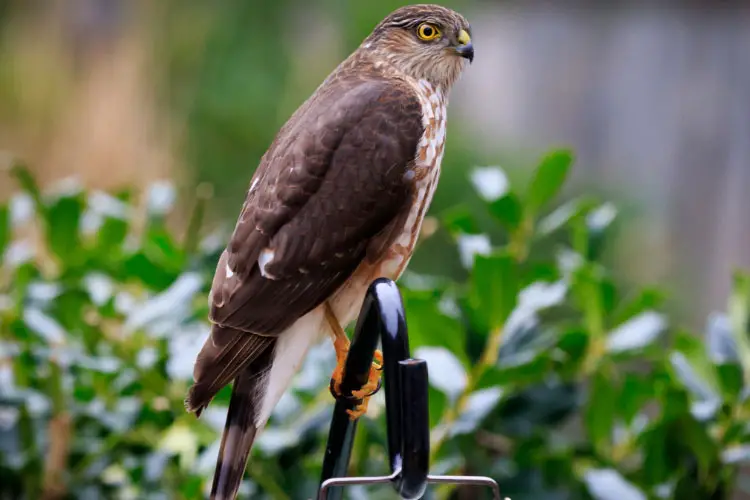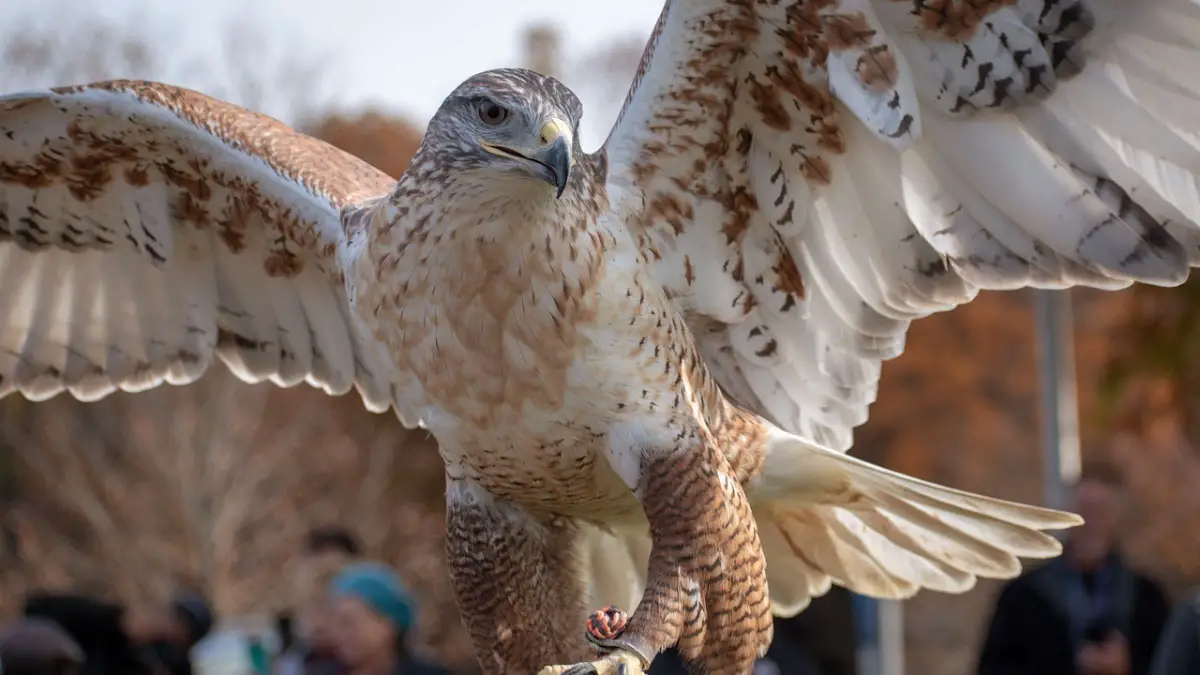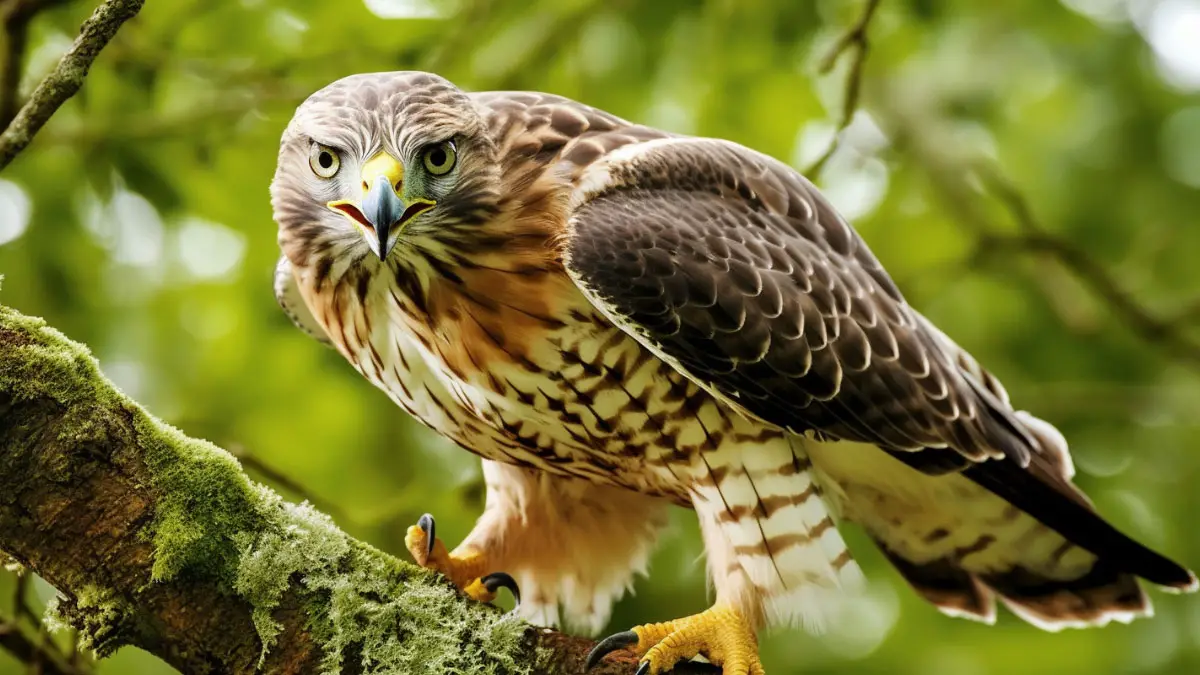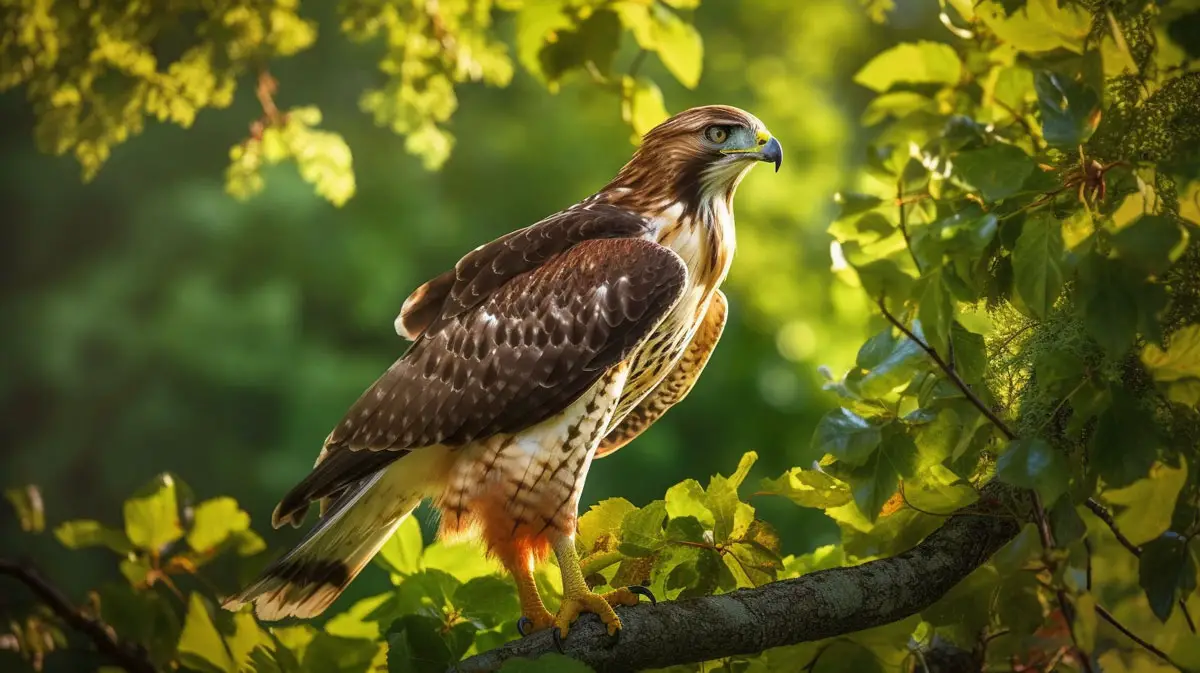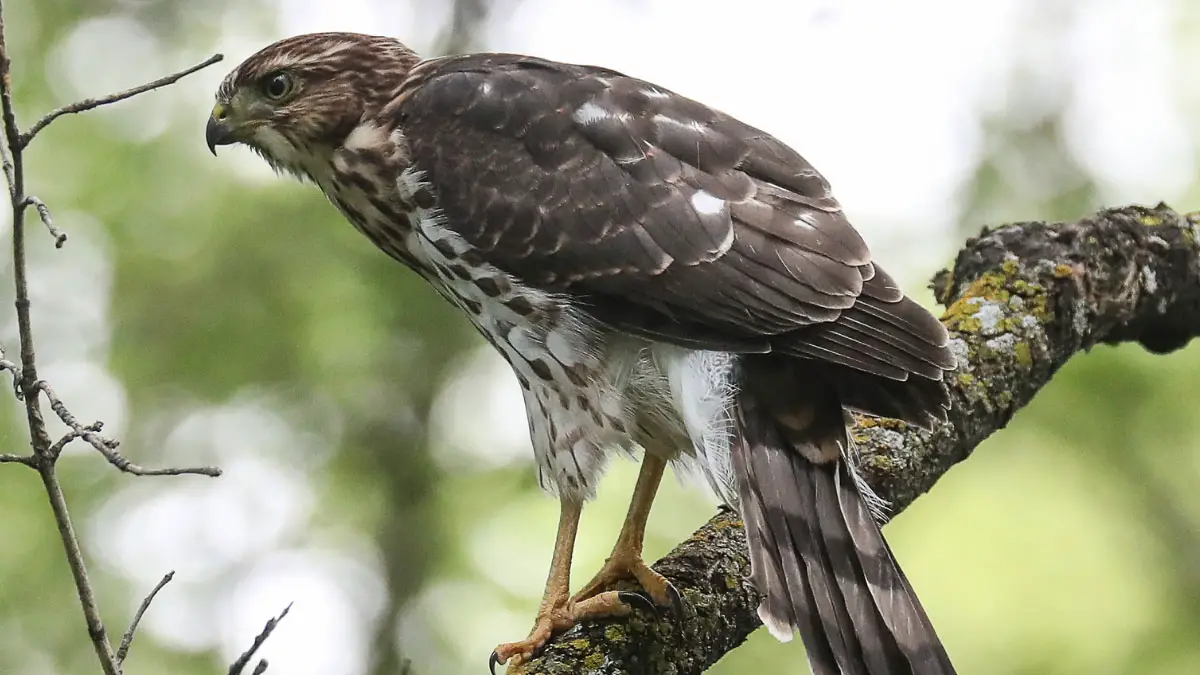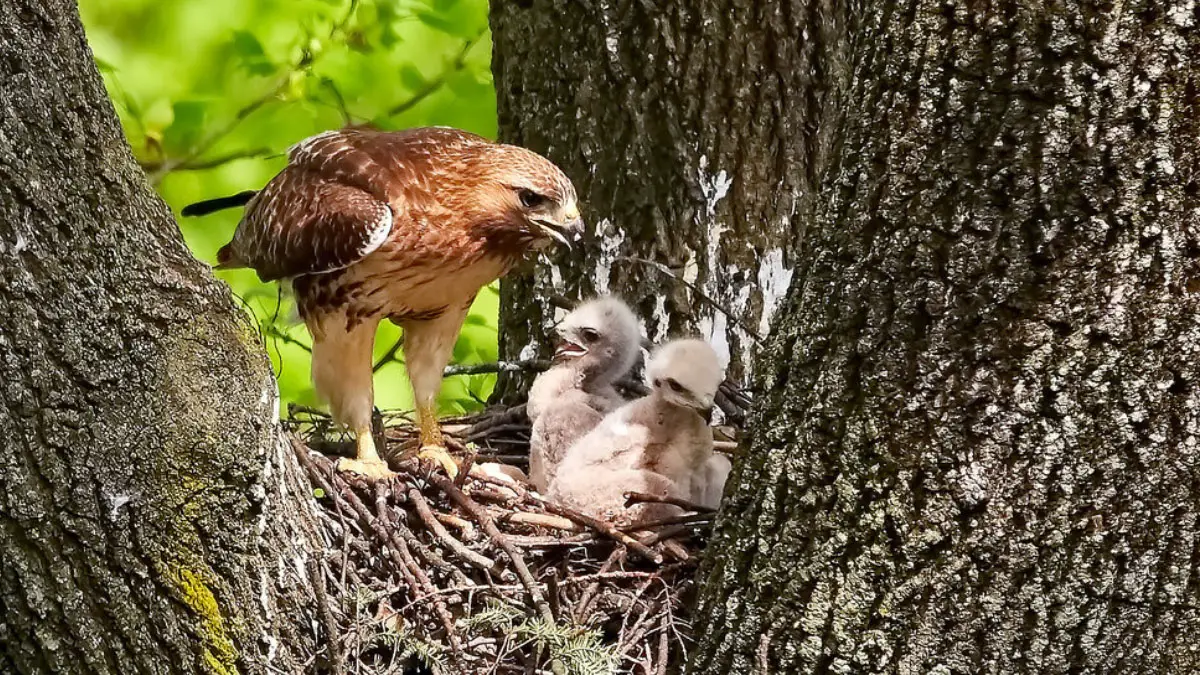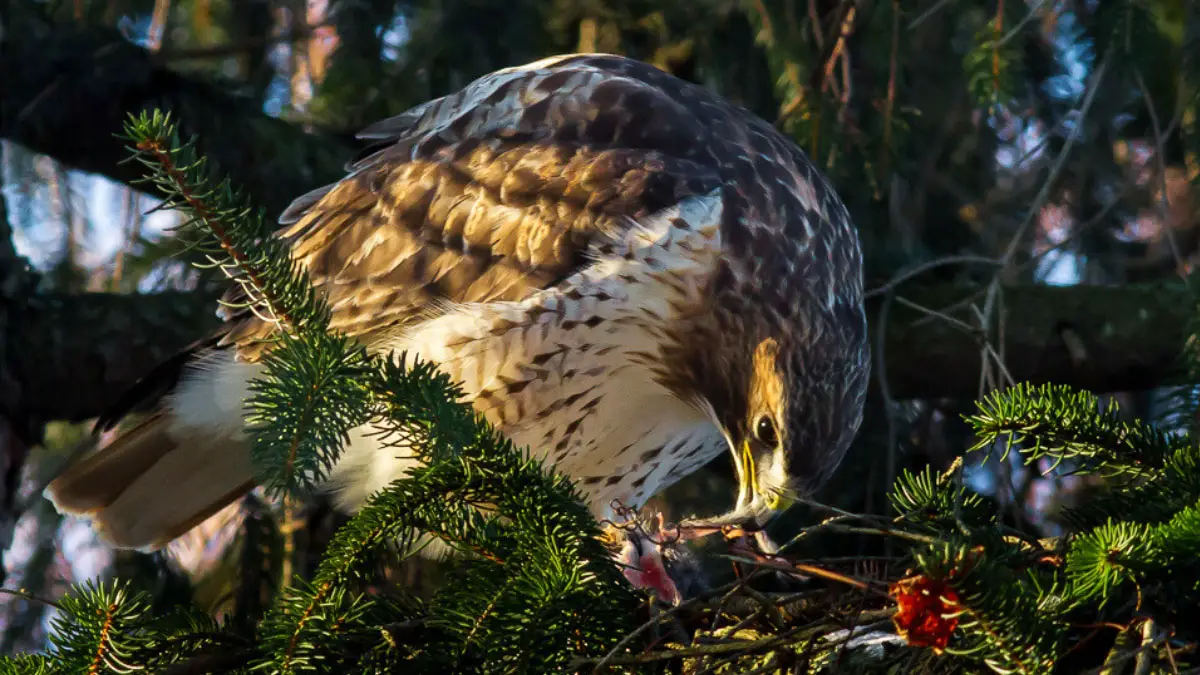On a typical day, hawks enjoy hovering over trees and resting in their natural shelter or other high places. They are predators and prefer to hunt early morning hours or just before dawn when the temperatures are cool. Sometimes, hawks may be flying around in a yard or resting on rooftops and chimney caps. Hawks are unusual, and their presence might bring you some concerns.
So, why are hawks hanging around my house? The most common reason hawks hang around your house is to hunt prey. If your yard has small birds, rabbits, frogs, squirrels, or voles, the hawks might be preying on them. Also, if your yard is in a calm environment near a water body, these conditions will favor them to stay.
In nature, hawks are birds of prey, so when they lurk around your home, it’s best to get rid of them. Read on for more reasons and humane ways to get rid of them.
Why are hawks Hanging Around my House?
While hunting, hawks prefer sitting in a high place for better surveillance as they use their powerful eyes to spot prey. They might use your house roof, nearby tall trees, and chimney caps as perches and dining points. Houses provide better camouflage to hawks compared to poles and tree branches.
If your house is near a field with wild prey, the hawks might be using it for observation. They sometimes prefer surveying from low-hanging tree branches rather than the usual soaring predator stalking. Also, if fields nearby have corn, the hawks will stick around to practice hunting with corn cobs.
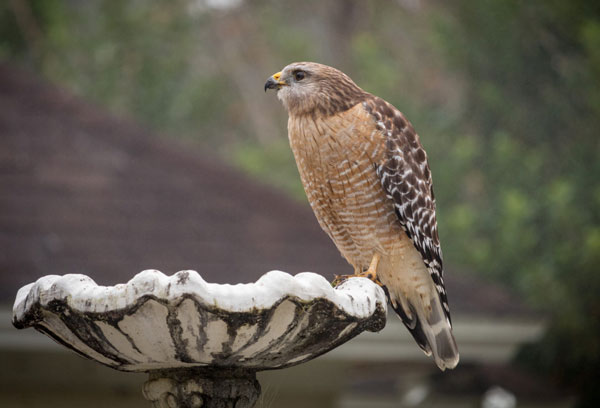
Hawks can attack small pets like dogs and parrots injuring them while playing outside. Therefore, if you own these pets, it’s best to gather a strategy fast and get rid of them. In a lucky scenario, hawks will stop hanging around your house after they deplete all available prey. However, if the environment suits them better, they will stay and make nesting sites on your rooftop or yard.
Common Hawk Species and Their Target Prey
As discussed above, not every hawk species may be preying near your house. Some, like short-tailed hawks, are rare, and the sharp-shinned hawk preys on smaller prey. In the table below are common species you might see lurking near your home and their common prey.
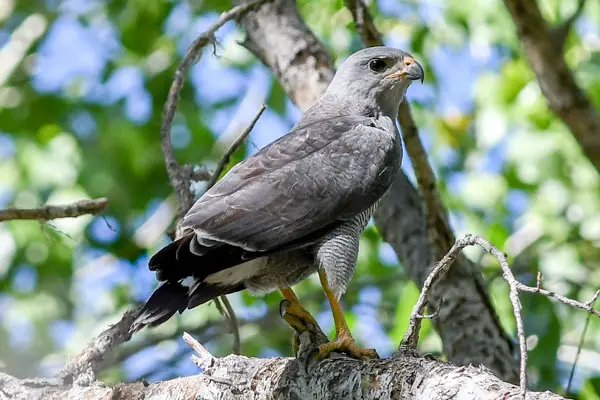
| Hawk | Prey |
| Cooper’s Hawk | Squirrels, common grackles, band-tailed pigeon, chicken, squirrels, and chipmunks. |
| Red-tailed hawks | Squirrels, chickens, rabbits, insects, frogs, pigeons, voles, rats, lizards, and carrions. |
| Red-shouldered hawks | Voles, deer mice, chipmunk, shrew, sparrows, mourning doves, and starlings. |
| Rough-legged hawks | Voles, squirrels, mice, shrews, chickens, lemmings, and black-tailed prairie dogs. |
| Northern harriers | Ducks, voles, cotton rats, squirrels, rabbits, snakes, crayfish, and frogs. |
While you may enjoy hawks eating some animals around your compound, others you may not. Hawks will excite you by eating all insects around your compound, but will not spare your endeared pets either. Keeping watch is the most you can do to identify the hawks’ motive. This will help you devise a good way to keep them off.
Also read: Why Are Hawks Federally Protected?
Safe Ways of Keeping Hawks Away from Your House
Getting rid of the hawks can be simple or hard, depending on how long they have stayed. If a hawk had already built a nest on trees near your house, it might be harder to eject it. Below are some methods to banish hawks from a yard or a house.
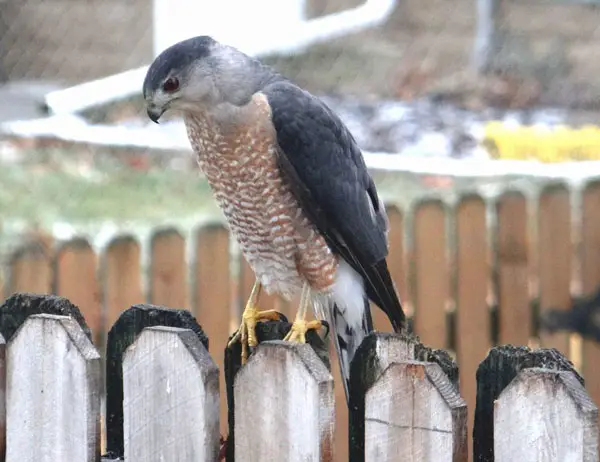
- Clean up carrion – Since some species of hawks are scavengers, the presence of carrion might be the reason they are around. With this decaying fresh still around your neighborhood, hawks will be returning from time to time.
- Use reflective obstruction – Hawks use their powerful site to spot prey, and you can use it to their disadvantage. Hanging reflective surfaces in your yard or on your house can help confuse the hawks due to multiple reflections. The common and readily available shiny reflective obstructions are Compact Discs reflective tapes, and mirrors.
- Keep a larger Pet – Dogs like sheepdogs and Shepherds can be used to discourage hawks from lurking nearby or messing with your poultry. These dogs should be tough to the preying birds but gentle to the poultry. Hawks don’t seem to like fighting with dogs because they can patently get injured or killed.
- Use sounds – Some sound frequencies or wind chimes can be used to scare the hawks away. These sounds might be annoying to you or your neighbors, but the results are impressive. You can also position Bluetooth speakers on their favorite surveillance spot and play hawk sounds to scare them away. Aluminum foil also produces a sound they don’t like.
- Use statues – Hawks are brave but have other raptors that intimidate them. Using an eagle, crow, or owl statue will help you scare them away. Place them strategically and shift their position occasionally to trick the hawks.
- Other Methods – If the hawks don’t retreat after employing the above tactics, you can always contact animal control. The animal control experts can discern the reasons hawks are hanging around your house and get rid of them. It’s illegal to kill these birds in America, and ejecting them should be done humanely.
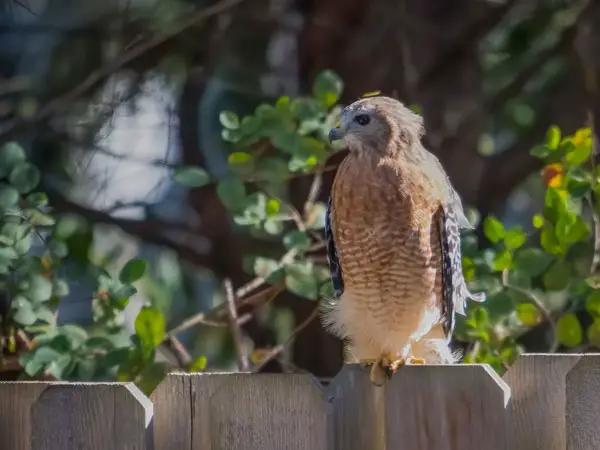
If none of these methods seem to work fast, start by getting a cage for your outdoor pets. The last thing you want is to risk your small pets, which hawks can attack within minutes. You can then exercise patience as you try each of the above methods.
FAQ
Seeing hawks around homes raises many questions and worries in humans. This question may be a result of security fear like the safety of your pets or spiritual fears. Below are some of the frequently asked questions and their answers.
Many bird lovers create bird baths and place several bird feeders to attract and sometimes tame them. However, these settings serve as a great hunting spot for hawks, providing a perfect hawk buffet. Also, if your home is in a peaceful and quiet environment with a diversity of prey, they will come.
You must be curious to know what it means to see hawks around your home. Hawks are said to be spirit animals, and dreaming or seeing them is a sign of communication from the spirit world. They also say, seeing hawks often means you are doing things the right way and on the right path. However, if this spirit animal stands with its back turned against you, it might be a sign of defeat.
Unprovoked hawk is not hostile to humans. They only attack to defend their nest or when they are hungry. Unlike in the United States, where it’s illegal to keep them, in other countries, hawks can be kept in a cage. However, hawks are expensive to take care of and are best left for the wilds.
Related: Hawk Approaching Speed
Conclusion
Many species of these bird-eating birds will hang around homes with a purpose. With their ultraviolet visions, they might be using buildings and trees nearby for surveillance as they search for prey. In the worst scenario, they might be perching nearby to hunt your poultry or pet rodents.
Why are hawks hanging around my house? You now know the areas to check if this is your predicament. There are several safe ways of getting rid of these birds of prey from your home. You can play with their sight and hearing senses to deter them from your home. However, if all the methods don’t work, you can call your local wildlife officers to help you.
